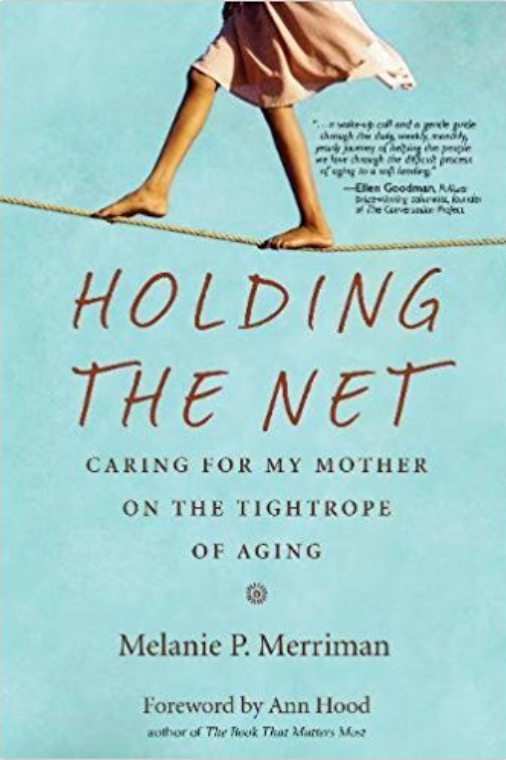"There is no greater agony than bearing an untold story inside you."
--Maya Angelou
Become a better writer in 2 minutes.
Take the 12-step/12-day writing challenge. All 12 steps available on YouTube. For a more extensive video class, click here.
EPISODE 50: We Don’t Care About Your Life if it Doesn’t Serve this Story.
This is our 50th episode and our last episode of Season 5. Today we’re talking about omitting needless words because who has time for excessive blah, blah, blah. You will hear a great example of a story that got chopped in half. Allison Langer’s story called Why I decided to ignore the judgy snobs (like me) and have my babies on my own was published in the Washington Post, August 31, 2018. After Allison tells her story, we talk about how the story lost 1,500 words.
This episode is also about working out your shit by writing every last detail then omitting all the details that don’t have a direct impact on what your story is about. Student Aaron Curtis (www.facebook.com/skinnyaaroncurtis/) is going through a second divorce. In class, the prompt was Justice. Hear Aaron’s response and see how it doesn’t really matter what the prompt is. If there’s something on your mind, it usually comes out in writing class.
EPISODE 49: This is Awkward. Nobody Wants to Talk About Money.
Writing about hard topics like money is awkward. Nobody wants to admit that they have money. And nobody wants to admit that they don’t have money. Money is one of those topics that embarrasses people or divides people. This episode talks about MONEY.
You’ll hear a story by Kathryn Sullivan, a listener in Boston, who responded to the prompt Something You Don’t Understand. Kathryn wrote about the financial complications of her cross-cultural relationship. Another student shares a glimpse into his current relationship with money.
Episode 48: Get Into a Writing Class So You Can Write About Your F'd Up Family.
In this episode, we talk about compassion and families and the legacy they leave.
We’re also talking about how to write about those people in our lives who have fucked us up. And who hasn’t been fucked up by a parent? However, nobody wants to hear a rant. We must get to know the characters from all sides, which means, all the good things and all the ugly things. Nobody is all good or all bad.
Liz Marquardt is a student in our class who has told stories on the podcast before. She does a great job of characterizing her dad in the story we bring you today.
You will hear a brief interview with Liz, so you can get to know her better. After her story, Andrea and Allison offer feedback and their reasons why this story was well-characterized and well-written.
Episode 47: Show and Tell.
In this episode, we examine the popular writing tenet, show DON’T tell. We believe just showing is not only impossible, but detrimental to your story. Telling gives insight into what the narrator is thinking and feeling.
To test this theory, we asked our students to just SHOW. We gave the prompt: A fight and instructed them to go directly to scene without explaining. After ten minutes, the students were asked to continue where they left off but to move from the scene into exposition, to just TELL. They were instructed to explain what was going on in the story, give background, and tell what the narrator was thinking and feeling. What we found: It’s impossible to show without telling.
You will hear short prompt responses from student Misha, who has read many stories on this podcast, and student and co-host, Allison Langer. Finally, teacher and co-host, Andrea Askowitz, will read a longer piece called Spoiled Mom, which was developed out of this exercise and published in June 2018 in Mutha Magazine.
EPISODE 46: An Object is More than Just an Object.
Today on our show, we are talking about objects. Things like a pen, trash cans, reading glasses, and a scale. We can build stories around these things because these objects affect our lives. They can stand in for an emotion. The phrase for this is object correlative. T.S. Eliot used this phrase to describe “a set of objects, a situation, a chain of events which shall be the formula of that particular emotion.”
We asked students in our class to write about an object. You will hear prompt responses from three students. Allison Langer writes about dependence on reading glasses. The glasses represent age and loss. Liz Marquardt writes about garbage bins, which become symbolic of the frustrations of a long-term marriage. Maya Kieffer gave the same prompt to her poetry students in a class she facilitates through Exchange for Change at the Dade Correctional Institution, and we learn how an object can reveal so much about perspective. In a longer story, Margery Berger, takes us into her world through her life-long relationship with her scale. We see her battle with weight and control.
Each student takes an ordinary object and shows the object’s impact in their world. And because of that process, we feel the emotion each object represents for the narrator.
EPISODE 45: Identity Is Fuzzy. What’s Behind YOUR Many Faces?
Sometimes what we show on the outside is not what we feel on the inside. As a storyteller, you have to know who you are. Or try to figure out who you are through the writing.
On this episode, Aaron Curtis writes about his bisexuality. Tobi Ash writes about hiding beneath a veneer. Yaddyra Peralta questions her racial identity despite her father’s denial.
EPISODE 44: Voices Carry a Lot of Weight in a Story.
The way a story is read out loud adds another layer to a story. On this episode, We’re talking about how our physical voices can carry a story with inflection, pace, volume, tone, and pitch. Voice can even make us love a story we might otherwise not like, or understand.
Meet ASIA SAMSON renown poet and founder of The Asia Project (spoken word, poetry and storytelling) as he performs his new poem Desks Are Not Bulletproof and takes you through his process.
EPISODE 43: Voices in Your Head?
Writing is a gift of yourself. It should give the reader or listener a glimpse inside. It should be something true and vulnerable. In a story, we reveal ourselves through voice.
What we mean by voice in a story is the tone, the mood, and the personality of the narrator. Voice can be created by word choice, sentence structure, and even punctuation. The way someone tells a story out loud plays a big role in how we receive the story, but in today’s episode, we are talking about voice as it appears on the page.
We’re also talking about what happens in life when you lose your voice.
You’ll hear stories from Allison Langer, Lia Seirotti and Missy Hernandez. Their word choices, and their familiar tones reveal so much about each narrator.
EPISODE 42: Secret Pleasure, Who Are We to Judge?
On this episode, we’re talking about secret pleasures, with a twist. We’re bringing you the winner of our Fall contest: Secret Pleasure.
Erika Flynn, from New York City is a professional mistress. She tells us how she is the secret pleasure. Lia Seirotti, a student in our class, tells a story called Ball and Chain, about her own secret pleasure.
Both stories bring up the issue of fidelity. In writing class, we do our best to talk about the strength of the writing and leave the moralizing to our religious brethren. But in the case of these two stories, we think everyone’s going to have an opinion, so we give ours. This is the price of storytelling. We think it’s worth the price.
Episode 41: The Moment I Knew Everything Was About to Change.
On this episode, we’re talking about moments. Going to a moment is a storytelling technique that requires the narrator to first remember something dramatic or important and then paint a scene.
If you remember a moment from childhood or last week, or whenever, there’s probably a story there. Our job, as writers, is to discover why these moments have stayed with us.
You'll hear stories from Student Karen Collazo who goes to a moment that takes her back to another moment that she fleshes out in scenes. DCI inmate, Luis Aracena, will read his story, American Hero. Luis is one of Allison’s students at the Dade Correctional Institution where she’s a facilitator for Exchange for Change.
Photo by Rowan Moore Gerety
Luis Aracena is an inmate at the Dade Correctional Institution serving a 45 year sentence. Allison met Luis when she started teaching memoir writing this past summer as a facilitator for Exchange for Change. To learn more about Exchange for Change and to get involved visit their website. See more of Gerety's pictures and read his feature on the DCI graduation showcase, 'The Crying, The Laughing, The Hurt,' A Talent Showcase Inside Prison Walls.

















